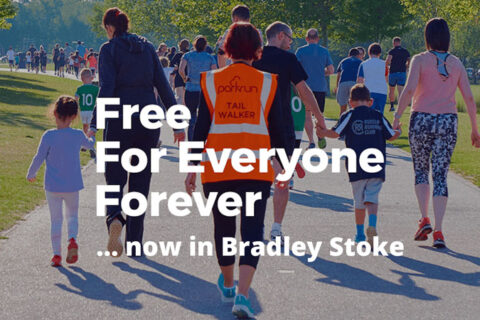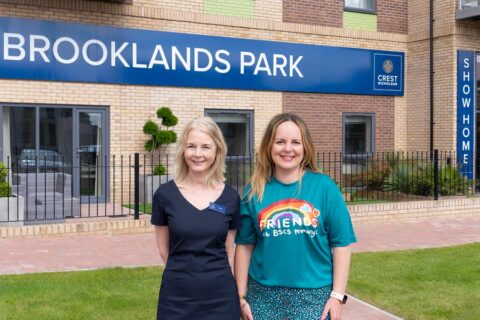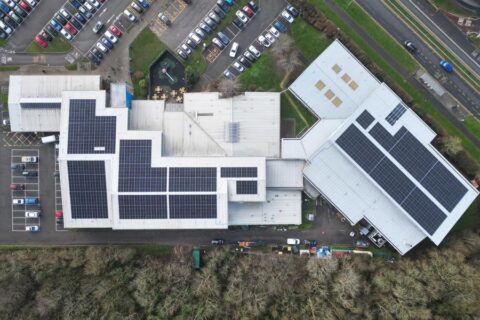South Gloucestershire Council (SGC) has decided to abandon its controversial policy of switching street lights off at night, but it is likely to be 2026 before the lights in Bradley Stoke are returned to all-night operation, the Journal can exclusively reveal.
The decision has been made in the light of the increasing cost of GPS-enabled ‘node’ controllers, which the council began fitting when lanterns were converted to LED technology from 2014. The nodes provide very accurate part-night switching times and are GMT/BST aware, meaning that lights switch off (and on) at exactly the same times throughout the year. Traditional photocell controllers, in contrast, are not GMT/BST aware and introduce an additional variation of +/- 30min on the nominal switching times.
With the council not yet three years into it’s ten-year programme of converting all of its 30,000 street lights to LED technology, node prices have risen from £50 to £85 per unit while photocell prices have remained static at £10 per unit.
Although the price rise is more than cancelled out by a fall in the price of LED lanterns from £190 to £120, councillors have chosen to seize the opportunity to realise further savings by reverting to photocell control for all lamps converted during the remaining seven years of the LED replacement programme.
The previously experienced issues of inaccurate switching times associated with photocells will be mitigated by dimming the lights to 50 percent of full power overnight instead of turning them off completely.
By making the period over which the lights will operate at 50 percent output (i.e. 11pm to 6am) longer than the period over which they are currently switched off completely (i.e. 1am to 5am), the increase in energy costs and CO2 emissions will be minimized.
The council says it plans to start installing photocells in place of nodes in all lights that are converted to LED technology after Easter 2017. The photocells in these conversions will be programmed to operate according to the new dimmed all-night policy. However, it says it does not plan to revisit lights that have already been converted to LED technology since 2014 (including all those in Bradley Stoke) until the ten-year programme is completed in 2024. The altering of these lights from part-night to dimmed all-night operation will then take a further three years. If areas are revisited in the same order used in the original schedule, this would mean that Bradley Stoke’s street lights will continue to turn off between 1am and 5am until 2026.
Bradley Stoke was one of the first urban areas in South Gloucestershire to be converted to part-night street lighting (in 2011). Its introduction was marred by malfunctioning photocells, 2,000 of which had to be replaced later in the year at the cost of the supplier.
Speaking of the policy change, Cllr Heather Goddard, chair of SGC’s Environment and Community Services Committee commented:
“As part of an efficiency drive, the previous cross-party administration took the decision to switch off street lights for part of the night.”
“This was controversial in some areas, particularly where there were concerns over road safety and crime, and I know most councillors have been contacted with concerns about street lighting.”
“As such, I am pleased to say that advancing technology allows us to reinstate whole-night lighting by dimming lights after a period of time, rather than switching them off. This will still save us money – it is a win-win that allows us to offer a better service at reduced cost.”
• In response to an enquiry from the Journal, SGC confirmed that a dimmed all-night policy using the cheaper photocells would have been technically feasible when the ten-year LED replacement programme was started in 2014, but “it was not considered financially or environmentally viable at the time”.
More information and related links:
- Agenda and reports for SGC’s Environment and Community Services Committee meeting on 18th January 2017 (item 12 refers)
- Part-night lighting (SGC)
- LED street lighting (SGC)
- SGC Lighting Policy April 2014 (policy prior to recent decision)
This article originally appeared in the February 2017 issue of the Bradley Stoke Journal magazine (on pages 4 & 5). The magazine is delivered FREE, EVERY MONTH, to 9,500 homes in Bradley Stoke, Little Stoke and Stoke Lodge. Phone 01454 300 400 to enquire about advertising or leaflet insertion.




